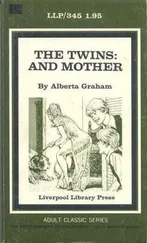Harry Graham - The Mother of Parliaments
Здесь есть возможность читать онлайн «Harry Graham - The Mother of Parliaments» — ознакомительный отрывок электронной книги совершенно бесплатно, а после прочтения отрывка купить полную версию. В некоторых случаях можно слушать аудио, скачать через торрент в формате fb2 и присутствует краткое содержание. Жанр: foreign_prose, на английском языке. Описание произведения, (предисловие) а так же отзывы посетителей доступны на портале библиотеки ЛибКат.
- Название:The Mother of Parliaments
- Автор:
- Жанр:
- Год:неизвестен
- ISBN:нет данных
- Рейтинг книги:5 / 5. Голосов: 1
-
Избранное:Добавить в избранное
- Отзывы:
-
Ваша оценка:
- 100
- 1
- 2
- 3
- 4
- 5
The Mother of Parliaments: краткое содержание, описание и аннотация
Предлагаем к чтению аннотацию, описание, краткое содержание или предисловие (зависит от того, что написал сам автор книги «The Mother of Parliaments»). Если вы не нашли необходимую информацию о книге — напишите в комментариях, мы постараемся отыскать её.
The Mother of Parliaments — читать онлайн ознакомительный отрывок
Ниже представлен текст книги, разбитый по страницам. Система сохранения места последней прочитанной страницы, позволяет с удобством читать онлайн бесплатно книгу «The Mother of Parliaments», без необходимости каждый раз заново искать на чём Вы остановились. Поставьте закладку, и сможете в любой момент перейти на страницу, на которой закончили чтение.
Интервал:
Закладка:
Barry's original design had included the enclosing of New Palace Yard, and the building of a huge gate-tower at the angles. He had also proposed to make Victoria Tower the chief feature of a big quadrangle, whence a splendid processional approach should extend to Buckingham Palace. The cost of such a scheme, however, precluded its execution, and the architect had to content himself with the present magnificent group of buildings, too well known to require detailed description, which form the best possible memorial to Sir Charles Barry's genius. 114 114 Barry was assisted in his work by another well-known artist, Augustus Welby Pugin. The latter's son afterwards claimed for his father the honour of being the real designer of the Houses of Parliament, but his efforts to wrest the laurels from Barry's brow met with little success.
In 1852 Queen Victoria entered the new Houses of Parliament for the first time, and some eight years later the whole building was completed.
The fire of 1834 proved a blessing in disguise. The ancient congeries of huddled buildings, to which additions had been made in various styles by so many kings, and which went by the name of the Palace of Westminster, had long ceased to provide a suitable home for the Mother of Parliaments. From the ashes of the royal residence arose at length a structure worthy to rank with any legislative building in the world, and adequate to the requirements of that national council which controls the destiny of the British Empire.
Towering above both Houses stands the lofty clock-tower which is one of the landmarks of the metropolis. From its summit "Big Ben" – the successor to "Great Tom of Westminster" – booms forth the hours, while still higher burns that nightly light which shows to a sleeping city that the faithful Commons remain vigilant and at work. 115 115 Big Ben was so named after Sir Benjamin Hall, First Commissioner of Works. The light is extinguished by an official in the House of Commons by means of an electric switch, the moment the Speaker's question "that the House do now adjourn" has been agreed to.
The new Upper Chamber, with its harmonious decorations of gilt and stained glass, its crimson benches, and its atmosphere of dignity and repose, supplies a perfect stage for the leisurely deliberations of our hereditary legislators, and forms a becoming background for such picturesque pageants as the Opening of Parliament.
The present House of Commons, though too small to accommodate a full assemblage of its members, makes up in comfort for what it may lack in space. The Chamber is illuminated by a strong light from the glass roof above; the green benches are cushioned and comfortable. At one end is the Speaker's chair, and in front of it the table – that "substantial piece of furniture," as Disraeli called it, when he thanked Providence that its bulk was interposed between Mr. Gladstone and himself – upon which Sir Robert Peel used to strike resonant blows at regular two-minute intervals during his speeches. On this table lies the heavy despatch-box which countless Premiers have thumped, and which still bears the impress of Gladstone's signet ring. Here, too, reposes the mace, that ancient symbol of the royal authority.
The mace is, perhaps, the most important article of furniture – if it can be so described – in the House. Its absence or loss is an even more appalling catastrophe than would be the absence of the Speaker. It is possible to provide a substitute for the latter, but there is no deputy-mace, and without it the House cannot be held to be properly constituted. The present mace is engraved with the initials "C. R." and the royal arms, and is the one that was made at the Restoration, to replace Cromwell's "bauble," which disappeared with the Crown plate in 1649. It is kept at the Tower of London when the House is not sitting, and the fact that its absence prevents the conduct of any business has been, on one occasion at least, the cause of grave inconvenience. In the middle of the last century Parliament adjourned for the day in order to attend a great naval review at Spithead, and was timed to meet again at 10 p.m. The special return-train containing members of the House of Commons was run in two portions, and the official who held the key of the mace-cupboard happened to be travelling in the second. As this was an hour late in arriving, the House had to postpone its meeting until eleven at night. 116 116 Mowbray's "Seventy Years at Westminster," p. 90.
Upon the position of the mace a great deal depends. When the mace lies upon the table, says Hatsell, the House is a House; "when under , it is a Committee. When out of the House, no business can be done; when from the table and upon the Sergeant's shoulder, the Speaker alone manages." On the famous occasion in 1626, when Sir John Eliot offered a remonstrance against "tonnage and poundage," when Speaker Finch refused to put the question, and the House almost came to blows, Sergeant-at-Arms Edward Grimston tried to close the sitting by removing the mace. At once a fiery member, Sir Miles Hobart, seized it from him, replaced it on the table, locked the door of the House, and put the key in his pocket, thus excluding Black Rod, who was on his way to the Commons with a message from the king.
The Sergeant-at-Arms is custodian of the mace. Attired in his tight-fitting black coat, knee-breeches, and buckled shoes, with his sword at his side, he carries it ceremoniously upon his shoulder whenever he accompanies the Speaker in or out of the Chamber. He is also, as we shall see, responsible for the maintenance of order within the precincts of the House, and is provided with a chair near the Bar, whence he can obtain a good view of the whole Chamber.
The arrangements made for the convenience and personal comfort of a modern legislator are of the most elaborate and thoughtful kind. Members of the Government, Whips, and the Leader of the Opposition are provided with private rooms in which to do their work. The needs of humbler politicians are no less carefully considered. By means of an intricate system of ventilation the atmosphere of both Houses is maintained at an equable temperature, summer and winter. The very air inhaled by our politicians is so cleansed and rarefied by a system of water-sprays, of cotton-wool screens and ice-chambers, that it reaches their lungs in a filtered condition, free from all those impurities of dust and fog which are part of the less-favoured Londoner's daily pabulum.
The statesman who seeks a momentary relaxation from the arduous duties of the Chamber can find repose in comfortable smoking-rooms where easy-chairs abound. He may stroll upon the Terrace in the cool of the evening, enjoying the society of such lady friends as he may have invited to tea, and watching the stately procession of barges and steamers that flows by him. (Occasionally the barges are loaded with unsavoury refuse, of which his scandalized nostrils are made unpleasantly aware. Sometimes, too, some wag in a passing excursion-boat facetiously bids him return to his work in the House.) Heated by an unusually warm debate, or tired out by a lengthy sitting, he may retire to spend a pleasant half-hour in luxurious bathrooms, whence division bells summon him in vain. His intellectual wants are ministered to in well-furnished libraries, whose courteous custodians are ever ready to impart information, to look up parliamentary precedents, and otherwise to add to his store of knowledge. His inner man is generously catered for by a Kitchen Committee, composed of the gourmets of the House, who choose his wine and cigars, and watch over the cooking of his food with a vigilant and fastidious eye. His meals are appetising and at the same time inexpensive, and, as he sits in the spacious dining-rooms set apart for his use, his mind may travel back with kindly scorn to the days when his political ancestors drank their cups of soup at Alice's coffee-house, munched the homely fare supplied in Bellamy's kitchen, or satisfied their hunger in even simpler fashion on the benches of the House itself. Lord Morpeth, who was a Minister of the Crown in 1840, used always to suck oranges on the Treasury bench during the course of his own speeches. Fox ate innumerable dry biscuits on the hottest nights. David Hume, whose devotion to duty prevented him from leaving his seat in the Chamber, was in the habit of providing himself with a generous supply of pears, which he consumed while his less conscientious colleagues were slaking their thirst in Bellamy's finest port. 117 117 Francis' "Orators of the Age," p. 212, and Grant's "Random collections," p. 7.
During a twenty-one hours' sitting in August, 1880, a member (Mr. A. M. Sullivan) brought a large bag of buns into the House, and enjoyed what Mr. Labouchère called "a palpable supper." 118 118 T. P. O'Connor's "Gladstone's House of Commons," p. 88.
The sight of a member of Parliament enjoying an al fresco meal under the eye of the Speaker would to-day arouse indignant shouts of "Order!" Even the simple sandwich is taboo in the Chamber of either House, and nothing more solid or more potent than a glass of pure well-water, or perhaps an egg-flip, can be partaken of during debate.
Интервал:
Закладка:
Похожие книги на «The Mother of Parliaments»
Представляем Вашему вниманию похожие книги на «The Mother of Parliaments» списком для выбора. Мы отобрали схожую по названию и смыслу литературу в надежде предоставить читателям больше вариантов отыскать новые, интересные, ещё непрочитанные произведения.
Обсуждение, отзывы о книге «The Mother of Parliaments» и просто собственные мнения читателей. Оставьте ваши комментарии, напишите, что Вы думаете о произведении, его смысле или главных героях. Укажите что конкретно понравилось, а что нет, и почему Вы так считаете.












